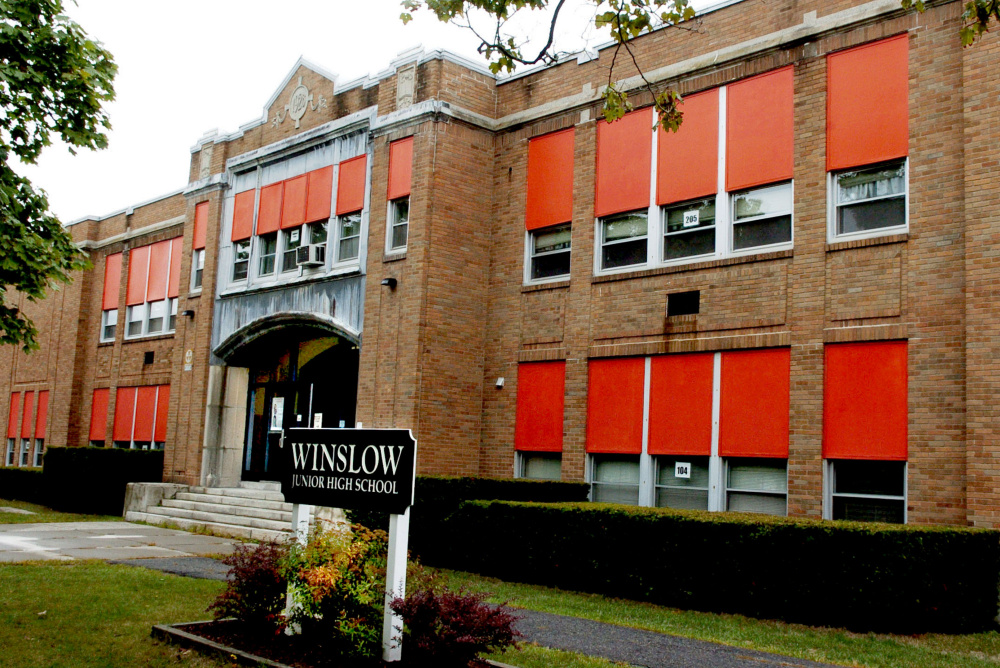I am voting yes on the $10.3 million Winslow school bond. This referendum is in line with other spending decisions that the Town Council has made in my eight-plus years of service.
The reasons I believe it should pass this are as follows:
1. It would provide a school facility that insures a safe and adequate learning environment for seventh to 12th grade.
2. Winslow can no longer support a three-school system because of facility and administration costs.
3. Additional classrooms are needed at Winslow High School to house incoming junior high students. The additional classrooms include math, science, music, and art spaces ($5.1 million).
4. It would enlarge the half gym to a full-size gym to be able to offer classes and hold sporting events for incoming junior high students (elimination of the junior high gym, $755,000).
5. It would enlage the cafeteria to enable students to get their food and eat in a 20-minute timeframe ($230,000).
6. It would reduce the square footage of current total school space by 35,000 square feet.
7. The new auditorium would replace the 600-seat junior high auditorium for $2.95 million. The 200-seat high school auditorium does not allow the high school or the junior high to gather for assemblies or events. In the consolidation plan, the high school auditorium would be made into a music, art, and choir area for the added student populations. If we reject this bond measure and keep the 200-seat auditorium, additional space will have to be added to the project for incoming students, resulting in additional cost.
8. It would ensure an independent Winslow school system well into the future.
Opponents argue that the project started out at $5.3 million and moved to $10.3 million. I agree. The $5.3 million was just for classroom costs and did not take in consideration any other project needs. Numerous subcommittees worked hard to meet the minimum needs of adding seventh- and eighth-graders to the high school and sixth-graders to the elementary school. The Town Council on two separate occasions approved the $10.3 million resolution.
Opponents also argue that school enrollment is down but the cost per student keeps climbing. My argument to that is the requirements and services mandated for the schools to administer keeps adding to the cost of education. Ask any teacher or administrator how education has changed over the last 10 years.
Over the last couple of years, many tough decisions have had to be made to keep the tax rate in Winslow flat. To help maintain the tax rate, the council has had to take money out of the town’s surplus. Further reductions in the surplus will be difficult and the need to reverse this trend will have to be addressed. Also, many state obligations have been put on the local municipalities to fund. One of many mandates is the cost-sharing of teacher retirement.
Adding to the problem is that state revenue sharing has been reduced and is currently at 2 percent. Revenue sharing was designed to work with 5 percent of sales tax, income tax, and corporate tax returned to municipalities for relief of property taxes. If municipal revenue sharing was restored to 5 percent, this would mean that Winslow would get approximately $500,000 in total revenue. The state restoring revenue sharing back to 5 percent is an unrealistic expectation but demonstrates the issue of state funding.
General purpose aid to schools has been reduced to well under the 55 percent mandate. School funding to local municipalities is a state formula that sends state tax revenue back to municipalities, again for property tax relief.
As a Winslow resident, I too am concerned on how this $10.3 million bond will affect the tax rate. The answer to how much the tax rate will increase is unknown. We do know that if we do not get additional revenue, the mil rate could increase by more than 1 mil to cover this bond. A 1 mil increase in the tax rate would increase the tax bill $140 per year on a home worth $150,000. Payment per year for the bond for 20 years is around $600,000. To offset some of the cost, shutting down the junior high will save the town $250,000 per year. The council and school officials will need to find additional cost savings or funding options to prevent such a large burden on Winslow taxpayers.
The state has budgeted for increases in revenue sharing and school subsidies for fiscal year 2019. If left in place, these increases could potentially help offset some of the bond cost. I’m keeping an optimistic outlook on potential revenues streams.
On Question 1, I am voting yes.
Ray Caron lives in Winslow.
Send questions/comments to the editors.


